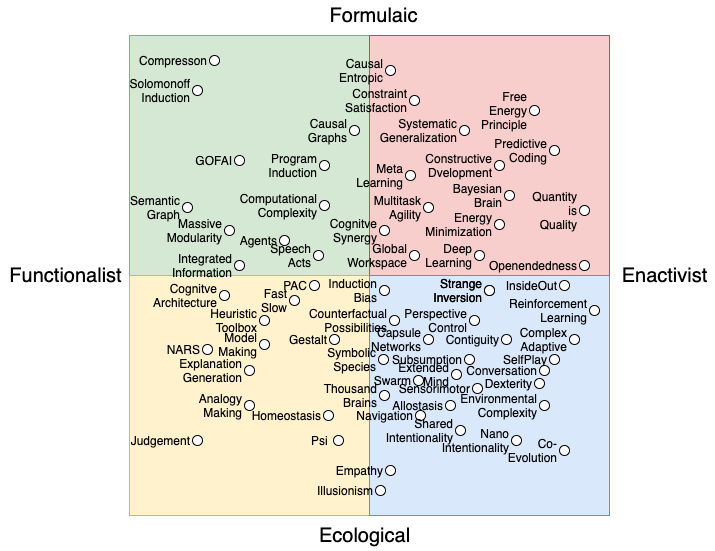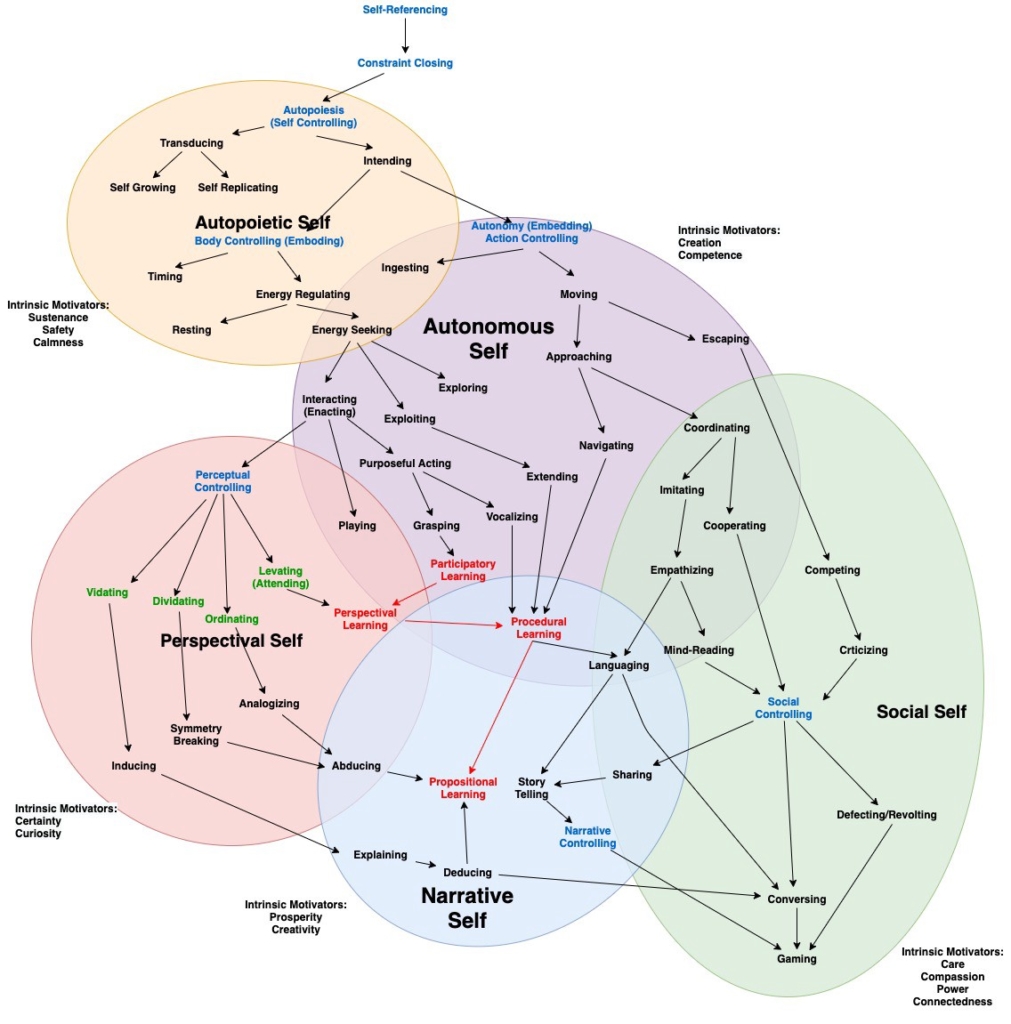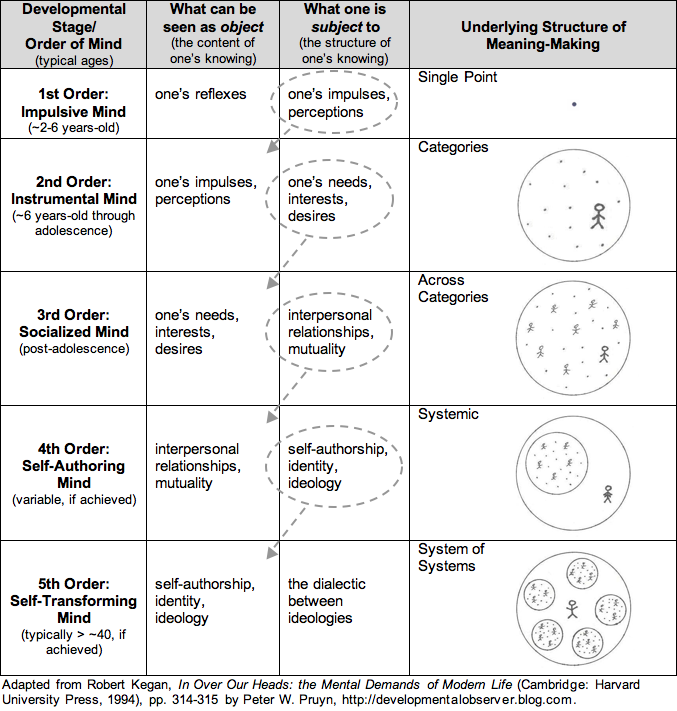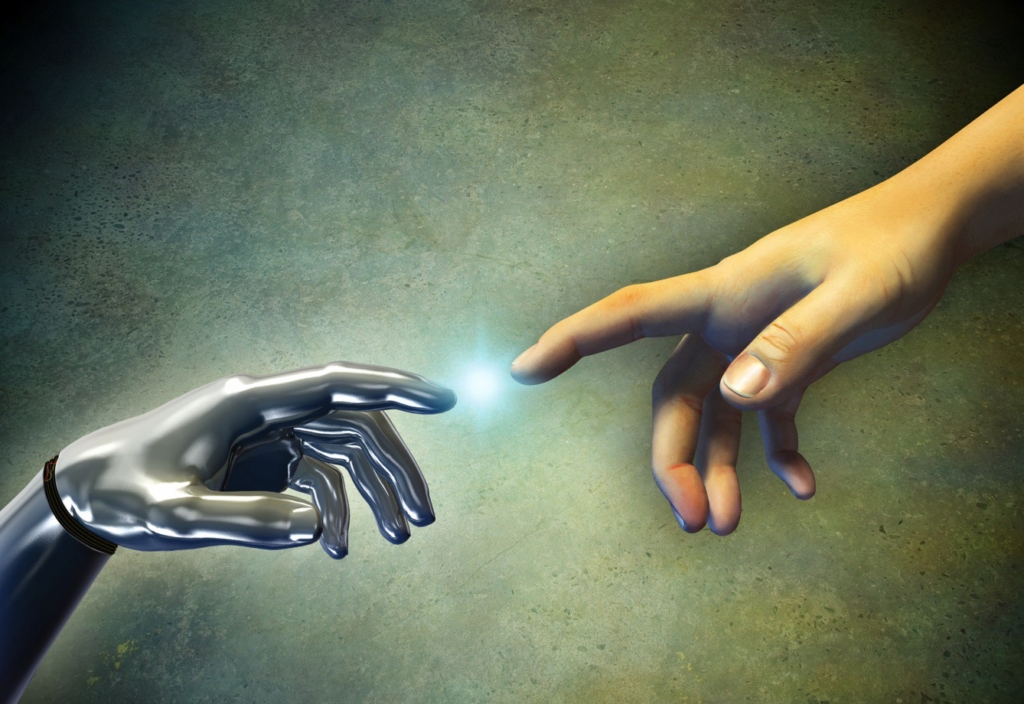Written by Carlos E. Perez– author of Artificial Intuition and the Deep Learning Playbook —
Underneath the shallow surface of the nature vs nurture debate is the difference between descriptive formulaic models versus enactivist generative models. Newtonian thinking always is attracted to functionalist rather than ecological methods.
Modern language is biased towards the categorization of things (that of being) rather than the generative nature of processes (that of becoming). We emphasize nouns rather than focusing on the nuances of verbs.
When we examine the realm of quantum physics, the bias embedded in our language ties up our expressions into knots. We are unable to express the nature of reality without interpretations that are completely unintuitive.
Nature has no responsibility to present itself in a manner that is intuitive to humans. Humans invent their intuitions of this world to participate in the societies they’ve invented. Nature invented itself prior to the existence of humans.
The intelligent design versus evolution debate is a manifestation of the clash of human intuition (intelligent design) and the non-intuitiveness of evolutionary processes. It is non-intuitive enough that the philosopher Daniel Dennett refers to this as the strange inversion of reasoning. An anthropocentric theory that takes the central role of a human viewpoint usually turns out to be wrong.
Occam’s Razor is a generalization of this anthropocentric viewpoint. That is, that nature somehow selects theories that have simple explanations. The flaw here is that simple explanations does not imply generative processes.
Richard Sutton has an astute observation that the 1st level (i.e. Computational) of Marr’s 3 levels of analysis has not been given enough emphasis. en.wikipedia.org/wiki/David_Mar… Sutton proposes Reinforcement Learning as an idea that fits within Marr’s computational level. Sutton argues that RL is explicit about the goals, what and why of intelligence. In RL, the goal is to maximize reward signal and in the process a policy, value and generative model is learned.
We cannot understand general intelligence if we cannot even express what the brain does. The statement that the purpose of the brain is to think is a vacuous statement.
What does a brain do and why does it do it? There are many ideas to answer these questions:

But of all the multitude of agents in the universe that is capable of computation, there are the kinds of agents that arose from biological mechanisms. Why they do what they do is expressed in their history and their context. In the process that got them to the now.
The answer to Marr’s Computational level as to what it does and why can be understood from the perspective of the individual and thus the self.

Marr’s computation level is actually an expression of computation as defined by Cantwell-Smith. Computation = Intention(why) + Mechanism(how). An intelligent process (the what) is what translates an intention into a mechanism.
As Wittgenstein so insightfully discovered, humans employ language games to express different intentions. Human conversation is an intelligent process that manipulates a social context to achieve the speaker’s intentions.
The later Wittgenstein realized the flaw of early Wittgenstein. Human language and thus all thought cannot be disentangled from the social games that are played. His ending of the Tractatus expresses the absurdity: “Whereof one cannot speak, thereof one must be silent”
Wittgenstein was a pupil of Bertrand Russell. Ironically, Wittgenstein’s insight leads him in the same direction as Godel’s incompleteness. It was Godel who destroyed Russell’s great ambition to formalize all of mathematics.
All too many researchers in the study of mind are stuck in an early Wittgenstein framework. This is not unexpected considering like Wittgenstein, a strong logical mind seeks a reductionist method that disentangles itself from the social context.
But what is a human mind if it were not for its intrinsic shared intentionality? Just as a brain-in-a-vat is an absurd proposition, human cognition cannot be disentangled from social intentionality
In fact, as Kegan has conjectured, the evolution of intelligence is towards a more complex and wider context.

The tool making and using of the human mind is a consequence of its ability to extend its mind. That extension goes beyond the use of inanimate tools but to the control of other individuals and ultimately to the control of ourselves (i.e. narrative self). To use a tool one needs to extend one’s mind so as to be one with the tool. You cannot adroitly control a hammer unless it is one with your hand. Therefore it must be one with your body and thus one in your mind.
To empathize with another mind is to be one with the other mind. You cannot anticipate another without placing oneself into another. We understand ourselves when we reflexively employ this empathy to ourselves. Human’s extend our minds through the emergence of empathy. Human consciousness exists because of empathy.
________
Find more from Carlos E. Perez: https://gumroad.com/intuitionmachine
article source: https://medium.com/intuitionmachine/wittgenstein-and-the-emergence-of-empathy-dc26655a7201










